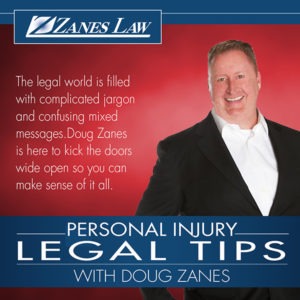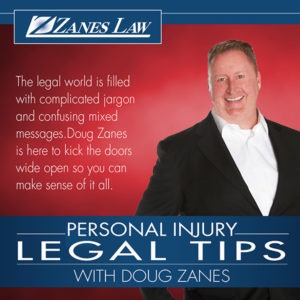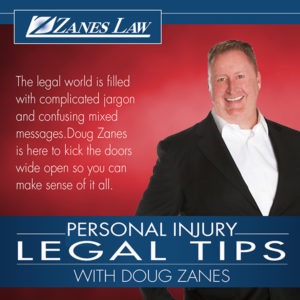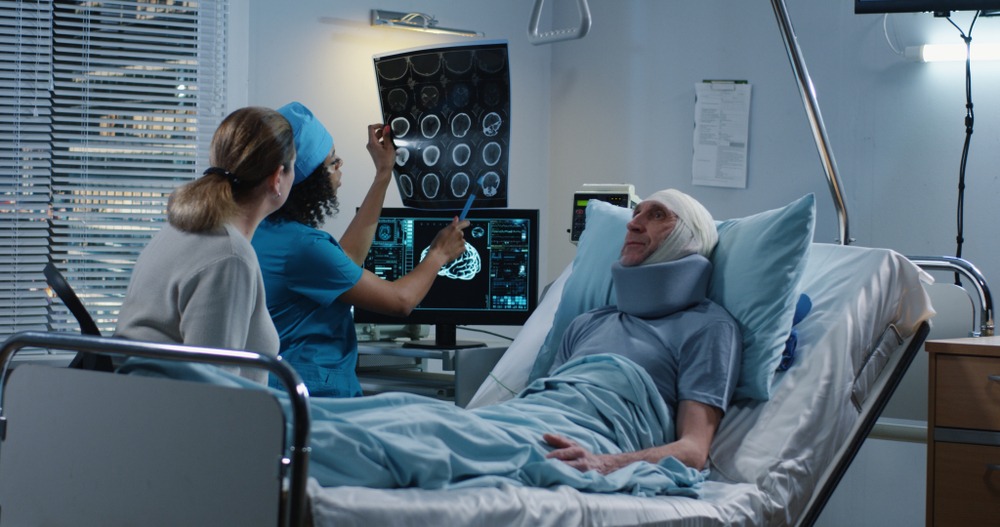![]() Contact Us (866) 499-8989
Contact Us (866) 499-8989
What Kind of Video Footage Can Legally Be Used as Evidence?
- Does the Source Matter?
- Proving Authenticity
- Relevancy
- What Happens If My Video Footage Gets Rejected?
- Can a Video Alone Be Enough to Win an Accident Claim?
- I Have Video Footage of My Accident. What Should I Do?
- Conclusion
- Home
- FAQs
- Personal Injury
- What Kind of Video Footage Can Legally Be Used as Evidence?
When you contact our Phoenix personal injury lawyers, you may have video footage you collected on your phone or a dashcam of the accident. You may have recorded witness testimony as well. Video footage is the most trusted form of evidence. As they say, seeing is believing.
Yet it is possible that a court could deny video evidence submitted in a case. What are the kinds of video footage that can legally be used as evidence? Here are the things your lawyer and the court will look for before allowing your video to become part of your case.
Does the Source Matter?
As long as your lawyer gets the video footage lawfully, it could become part of your case. Your cell phone isn’t the only source of possible video evidence. Depending on your accident, there could be a video from:
- Police body cameras
- Traffic cameras
- Security cameras
- A news crew
- Drones
- Eyewitnesses
There are rules that your lawyer and the police must follow to collect and preserve evidence. If these rules are broken, then the footage may not be admissible. As long as these are followed, the source of the video does not matter for admissibility.
For a free legal consultation, call (866) 499-8989
Proving Authenticity
Video is so compelling to viewers that the courts demand to know if what it shows is accurate and truthful. It is possible to tamper a video, especially a digital one, so there are some things the court will want to see like:
- Is there a time stamp?
- Is the video uncompressed, or in whatever raw state the device captures?
- Was it taken from the device?
- Is the footage clear, both audio and video?
Even if there isn’t deliberate tampering, improper care of devices and storage media can also jeopardize the admissibility of the evidence. Your lawyer may have to argue against claims of manipulation or data degradation to get your video into evidence.
A lawyer may ask to hold the recording device as part of evidence as well to show the court the origins of the video. If your lawyer cannot prove where the video came from, then the video could get rejected as inauthentic.
Relevancy
Video evidence is a form of demonstrative evidence. This type of evidence establishes facts. Therefore, footage that only shows assumptions or unverified information will not be admissible. The events in the video must relate to the accident.
Footage must also not be unfairly prejudicial. The video footage you have may be gruesome or shocking. If the footage does nothing to establish a fact in your case but could sway a jury because of the graphic nature, it could be ruled inadmissible.
There are other rules of evidence that may also apply, like hearsay in witness testimony videos or submitting multiple videos that establish the same fact. Video may also be rejected if it tries to make a case based on an assumption or is misleading.
Click to contact our personal injury lawyers today
What Happens If My Video Footage Gets Rejected?
If you give video footage to your lawyer and it gets rejected by the court, that does not harm your ability to sue. The only thing it does is make that piece of evidence inadmissible. Your lawyer should have multiple forms of evidence in your accident claim to submit like:
- Police reports
- Medical records
- Expert and witness testimony
- Photographs
Accident claims have been happening for centuries, long before the invention of video cameras. A video is not essential to prove that you have a claim or to prove your damages. Accepted video footage is incredibly useful, but it’s not a requirement to win.
Complete a Free Case Evaluation form now
Can a Video Alone Be Enough to Win an Accident Claim?
To win an accident claim via negligence, which covers most cases, your lawyer must prove four things to the insurers or the court:
- The defendant had a duty of care toward you
- The defendant violated that duty of claim
- That violation caused an accident
- How you were harmed because of the accident.
It is possible for a video to prove the first three things and enough of the fourth to get a win, but the video would have to show many things. It would have to reveal the identities of the parties in the case, show the violation that caused the accident, and show the accident.
However, a video won’t show all the damages you’ve suffered. Your lawyer will need to get additional evidence to prove the value of all of your compensatory damages.
I Have Video Footage of My Accident. What Should I Do?
First, recover the recording device and any storage device attached to it. If it was part of your vehicle, your lawyer can request access to the vehicle to retrieve the evidence. Most people take videos with their smartphones.
Do not alter or edit the video. Leave it on your phone and contact Zanes Law for a consultation. Bring your video with you. They can use the video to determine if you have a case and get a copy from you in accordance with legal procedure.
If your lawyer has any other advice on what to do with the video, follow it. A solid video can make your case much easier to win, but you and your lawyer must take care to avoid compromising the evidence so a court doesn’t reject it.
Conclusion
We can legally use any kind video footage as evidence in a civil case, but there are certain rules it must follow. The video must be obtained legally and preserved to show that it is authentic and untampered. The video must also be relevant to the case, establish a fact, and not violate other rules of evidence.
If you have questions about whether the video you’ve taken could help your case, contact Zanes Law for a free consultation.
Call or text (866) 499-8989 or complete a
Free Case Evaluation form
 Injury Lawyer Doug Zanes Interviewed For “Business Leader Spotlight”
Injury Lawyer Doug Zanes Interviewed For “Business Leader Spotlight”
Doug was recently interviewed by Randy Van Ittersum on the "Business Leader Spotlight Show." It was a great experience and gave him the opportunity to share important topics that are super
 Need Personal Injury Legal Advice? Listen to Our NEW Podcast by Doug Zanes!
Need Personal Injury Legal Advice? Listen to Our NEW Podcast by Doug Zanes!
We are excited to announce that we have officially launched the Zanes Law Personal Injury Legal Tips podcast, featuring advice from Zanes Law owner and responsible attorney Doug Zanes. When
 Should you hire an injury attorney? 5 Things You Need to Know
Should you hire an injury attorney? 5 Things You Need to Know
We know that when you’ve been injured in an accident, it can be difficult to take legal action quickly. After an accident, you might just want everything to be over and done with, so you
 Can I Settle An Injury Claim On My Own?
Can I Settle An Injury Claim On My Own?
Nobody expects to be in an accident—let alone get injured in an accident—but when it does happen, you may be asking yourself a lot of questions, including, “Can I settle an injury claim on my
Receive a Free, No-Obligation, Case Evaluation Now



